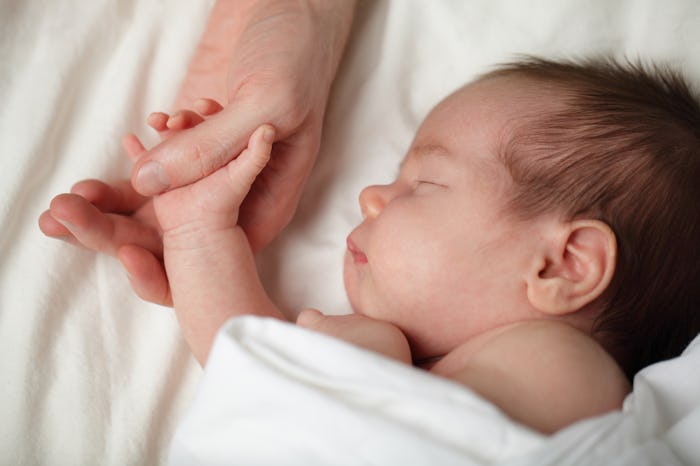Life

What It Means When Your Baby Rejects Their Security Blanket
The secret life of babies is something parents and health professionals have been scratching their heads over for ages. When the things that are supposed to bring a baby comfort just don't work at all — or worse — get flat out rejected, it's impossible not to grow frustrated and confused. For example, a baby might enjoy clutching a security blanket in their fists in order to fall asleep, but some babies could care less about a blanket or comfort object. So what does it mean if your baby rejects a security blanket? Do they just not need any objects at all, or should you keep trying until you find that perfect blanket that brings your baby the comfort they need? No need to panic, to be sure, but the answer might surprise you.
Let's start by understanding exactly what a security blanket signifies. A security blanket (also known as a blankie or lovey) is just one example of an attachment object or comfort object. The Baby Sleep Site defines a comfort object as being anything the baby brings to bed that provides comfort and is soothing. Some babies can begin gravitating toward attachment objects as early as 6 months, according to Baby Center, but most start between 8 and 12 months.
While a security blanket is a very popular comfort object, The Baby Sleep Site notes that other objects such as pacifiers, pillows, dolls, stuffed animals, and even toothbrushes have made their way into cribs for comfort. The important thing to remember, notes The Baby Sleep Site, is that whatever object you allow your baby to bring to sleep with them, it must not put them at risk for Sudden Infant Death Syndrome (SIDS).
A security blanket can also help to reassure a baby when they're separated from you, as the website Healthy Children points out. This is because objects like security blankets also serve as transitional objects, creating a bridge between you and your child when you're not there, like during sleep or day care drop-off. As Healthy Children says, "they help children make the emotional transition from dependence to independence."
It is also perfectly normal for a child not to develop an attachment to a comfort object like a security blanket. As referenced on Baby Center, Dr. Matthew Fradkin estimates that half of kids have a security blanket and the other half do not. Some babies prefer the comfort of self-soothing by sucking on their own hands or fingers, or playing with their own hair, or just plain staring into space. Of course, this isn't always ideal for you, the parent, as it is much easier to get rid of a security blanket than it is to get rid of, say, your child's thumb.
The bottom line is this: you do not need to try to force an attachment object on your child. If your baby takes to something in particular that brings them comfort, great. There is no reason to buy different brands of blankets or to try different colors or patterns until your baby lands on Mr. Right Blanket. They'll know what's best for them and react accordingly.